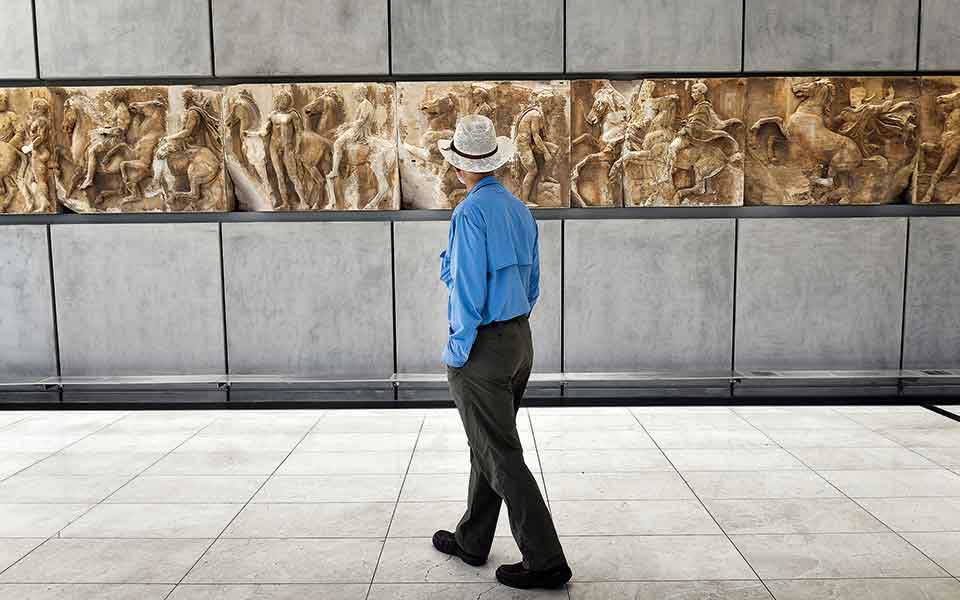Britain’s conservative newspaper is changing its stance in the conversation about the Parthenon sculptures, now supporting the campaign for their return.
In a leading article on Tuesday titled “The Times view on the Elgin Marbles: Uniting Greece’s heritage,” the paper reviews the history of the case, saying that treatment of the temples on the Acropolis in past centuries has been used as a reason to deny Greece its fifth century BC sculptures currently on display at the British Museum. However, that argument no longer holds, both because of the safe and accessible environment provided for the artefacts at the Acropolis Museum, and due to the failings of the British Museum, which has damaged the marbles with inappropriate cleaning methods.
“For more than 50 years, artists and politicians have argued that artefacts so fundamental to a nation’s cultural identity should return to Greece. The museum and the British government, supported by The Times, have resisted the pressure. But times and circumstances change. The sculptures belong in Athens. They should now return,” it wrote.
The campaign for the return of the sculptures, which is currently receiving attention worldwide, has been spurred on in various respected international media over the last months. Last week, news about fragments of the temple’s frieze being reunited with the rest of the artwork at the Acropolis Museum, was seen as encouraging examples and hopefully precedent for the return of the marbles currently held at the British Museum. The return of a piece from the eastern frieze by the Archeological Museum of Palermo, in particular, was covered by the Guardian, Xinhua, and Euronews.
The Times compares the deal made with the Italian museum, which will initially take the form of a loan exchange, with two artefacts from the Acropolis Museum traveling to Italy (a the 5th century BC acephalous statue of Athena, and a geometric amphora from the first half of the 8th century BC), with that proposed to the British Museum by Greece years ago; in exchange for the return of the looted sculptures, the museum would receive classical artefacts on loan from Greece, for a rotating exhibition. They also suggest another solution: “Let the sculptures be sold back at cost price. An act of parliament awarded Lord Elgin’s purchases to the museum. Let parliament therefore sanction their return.”
“Separating components of an artistic whole is like tearing Hamlet out of the First Folio of Shakespeare’s works and saying the two can still exist apart. Giving back the Elgin Marbles would be a magnanimous gesture when Britain needs to rekindle European friendships,” the article concludes.












